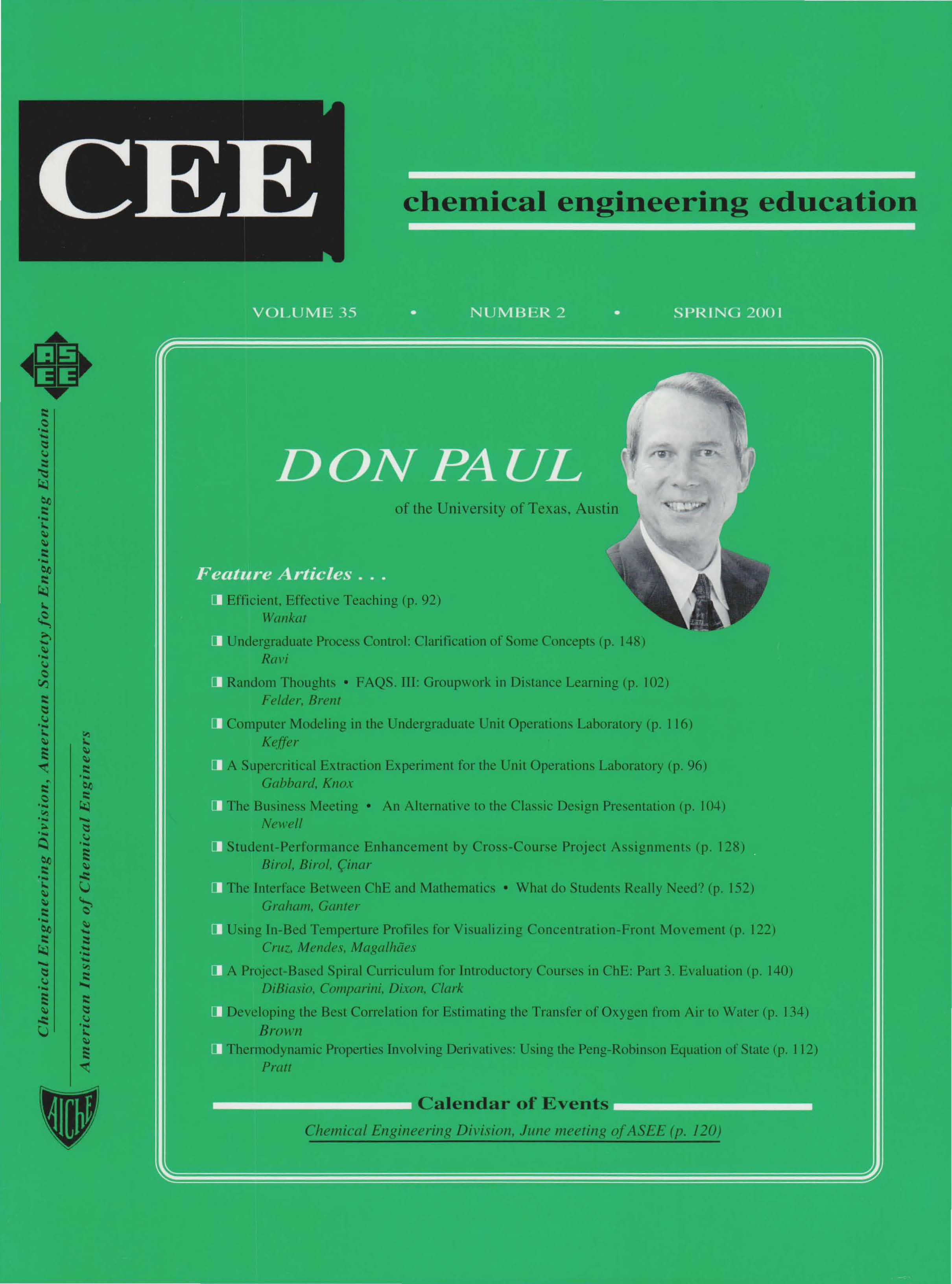Computer Modeling in the Undergraduate Unit Operations Laboratory
Resumo
In an undergraduate unit operations laboratory, the goal is to provide a hands-on demonstration to the students that the concepts of transport phenomena and thermodynamics do indeed describe the behavior of fluids within acceptable experimental error. Because most sophomore and junior engineering students have no feel for the validity and limitations of the mathematical models presented in lecture courses, we risk jeopardizing their faith in these concepts if we provide laboratory experiments that only qualitatively agree with the mathematical models. In this work, we describe an efflux from a tank experiment, of a type commonly included in ChE unit operations laboratory courses which, if performed in the absence of computer modeling, contradicts the predictions of the Bernoulli equation. When the experiment is performed in conjunction with simple computer modeling, however, it provides quantitative agreement with theory. This unequivocal agreement between theory and experiment impresses upon the fledgling engineer the validity of the Bernoulli equation and the value of rigorous modeling.


